It can be one of the utmost significance for you to choose the best deck foundation when investing time, energy, and money; whether Deck Blocks or Post Holes are best for you will depend on the characteristics of each.
Deck blocks are inexpensive and you can build decks without having to excavate large holes. As a result, the entire process is a lot easier than it once was, allowing even one person to complete the task.
On the other hand, Post Holes are more costly but they can be used to build higher decks with a more solid foundation. So that you may create an informed decision, let’s now concentrate more on the pertinent issues.
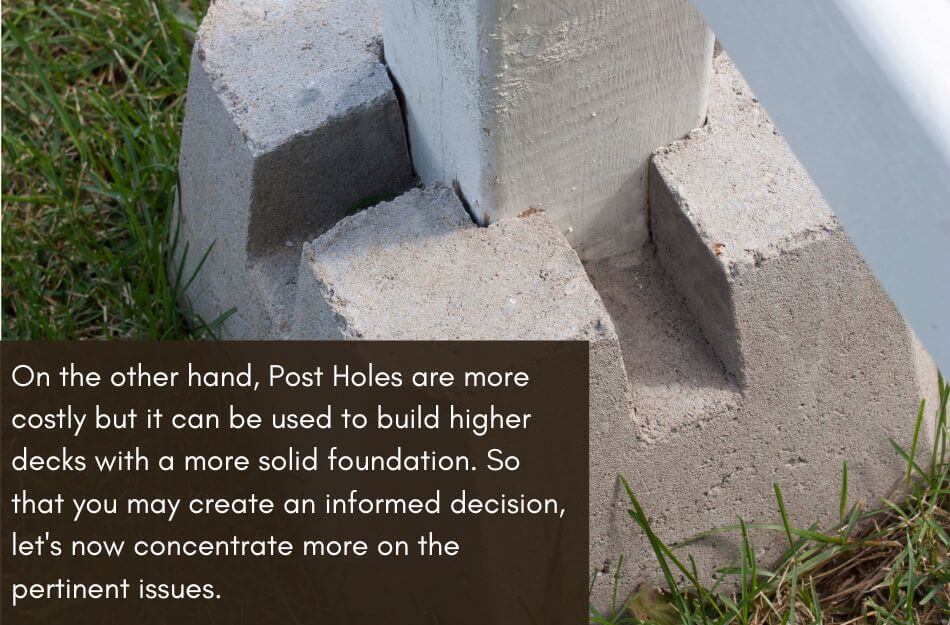
Every professional has a different way of thinking and will give you a different opinion. They may lead you astray because they are also considering their advantages.
How frequently do we become oblivious and overpay for the wrong things? After reading this article, you won’t have to worry about anything because we’ve thoroughly discussed Deck Blocks vs Post Holes.
Table of Contents
- 1 Deck Blocks vs Post Holes: Which is Suitable For You?
- 2 How Do Deck Blocks Work?
- 3 How Do Post Holes Work?
- 4 When & How to Use Concrete Deck Blocks?
- 5 How Are Post Holes Used in Constructions?
- 6 What Is The Better Choice?
- 7 Difference Between Deck Block vs Post Holes
- 8 Factors to Compare Between Deck Block vs Post Holes
- 9 Conclusion
Deck Blocks vs Post Holes: Which is Suitable For You?
If you want to rebuild your dull and uneven house then deck blocks are suitable for you.
Sometimes it becomes a costly procedure but sometimes depending on your luck it may appear to be a good and inexpensive installation for you.
Before binge shopping and buying useless things for your deck, outline what to buy and then start your shopping. Deck blocks have been a focal point of your houses for a long time.
Do you require a deck that is both strengthful and useful? You won’t enjoy the thought of a gust of wind damaging or destroying your deck.
The basis of your structure must be sturdy and solid to have a solid foundation. You can lay a solid foundation for whatever structure you’d like to build in many methods. The typical ones consist of the following:
- Deck Blocks
- Post Holes
- Concrete Footings
First, let’s see what deck blocks and post holes are, their working, and their usages in order to easily compare the differences so then you can easily choose the ideal product for your deck.
Also Read: How To Seal Pressure Treated Wood?
How Do Deck Blocks Work?
Precast concrete blocks, known as deck blocks, are used to support beams for supporting buildings, particularly floating decks.
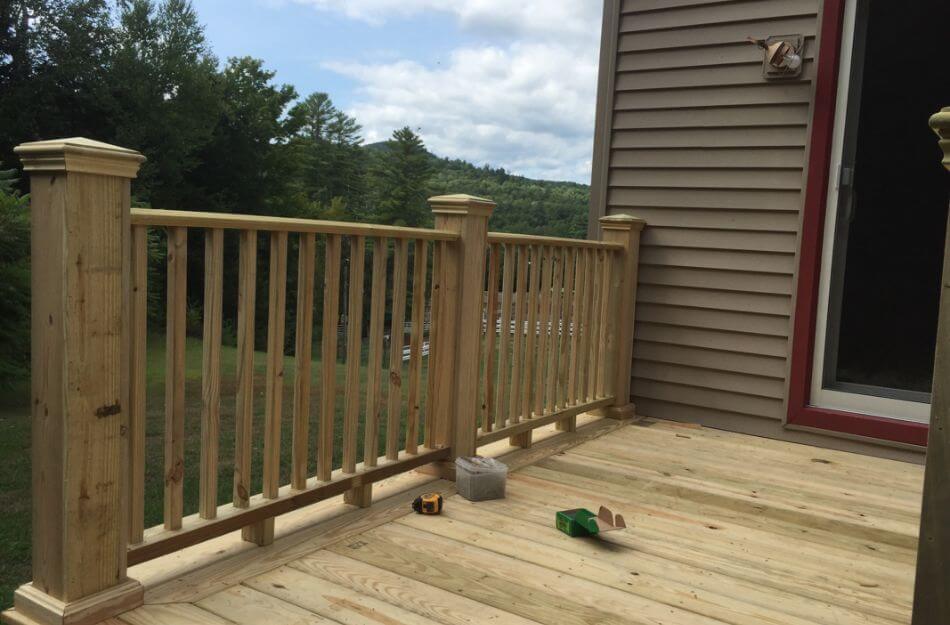
There are various deck blocks; some are perfect for building freestanding decks because they have notches for supporting beams, joists, and posts. (decks not attached to the building.)
For minimal decks that need little to no support, other blocks have channels or slots that can accommodate 24 wood (or composite components) used as floor joists at the border.
Although the dimensions of deck blocks differ depending on the manufacturer, they are typically 10 to 11-inch squares, 7 to 8-inches tall, and 48 pounds in weight.
How Do Post Holes Work?
Basically, post holes mean digging a trench in the ground. Setting up post openings is more difficult and technically challenging.
Additionally, an anchor bolt must be embedded so that nearly an inch of it is visible in the substance, which is frequently concrete.
With a pressure plate on top, fasten the post fittings with washers and bolts. After that, the supports should be attached to the frames and secured with 10-penny nails or structural screws.
Your post openings are right here! There is more than one method to do it correctly, so your contractors will set up the post holes differently.
Also Read: How To Seal Pressure Treated Wood?
When & How to Use Concrete Deck Blocks?
Deck blocks are best suitable for low- or ground-level decks because smaller building materials are more common and extra posts and blocks will be placed correctly.
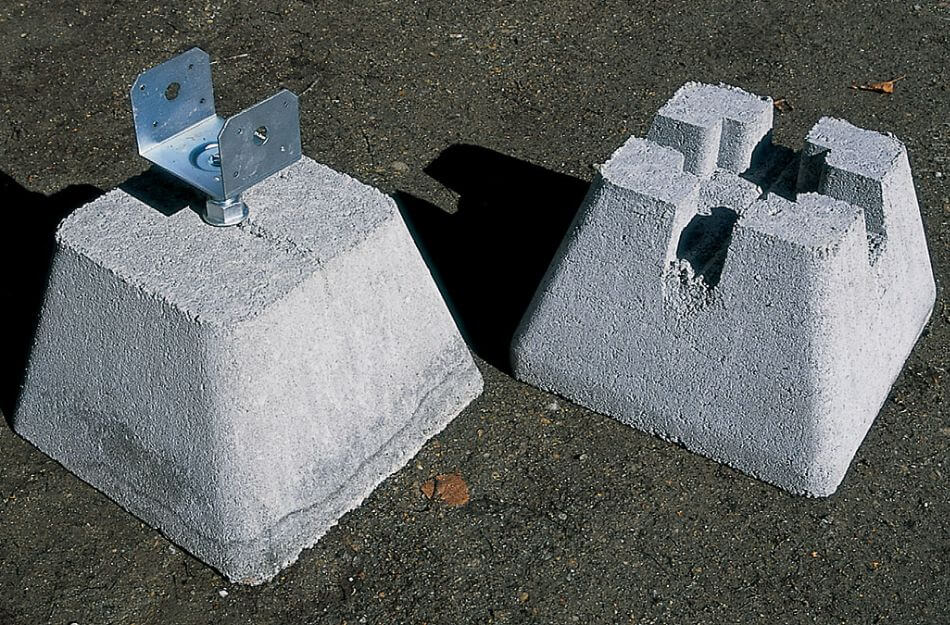
Decks at ground level are also less susceptible to lateral forces and post-uplift.
There are inconsistent regulations nationwide regarding how to attach the deck anchor post to the blocks.
Since there is usually no physical link between the post and the block, they may not be permitted in some areas with strong winds and worries about uplift forces.
We don’t want the post to be kicked out when subjected to lateral pressures, like when a lawnmower strikes a post. As a result, a lateral limit at the base of a post is required by building standards.
How Are Post Holes Used in Constructions?
A substantial hole is made in the ground to begin installing post holes. The local government decides the size of the hole. The frost line, which differs from place to place, determines the height.
Additionally, a power drill can dig the trenches, which ought to be six inches lower than the frost line.
The holes are filled with concrete and put inside concrete footer tubes. Expandable foam is an additional option. Due to their potential for breaking inside the concrete, the posts should be connected above the ground.
What Is The Better Choice?
The deck block cost is lower than all other post holes choices. Depending on the undertaking, a block might cost $6–$8, and overall costs may be quite low.
They don’t require costly equipment or need holes to be dug. They are manageable even by one individual, which facilitates the task.
On the other hand, post holes require more work, and the total cost of the process is higher than that of a deck. They won’t rust and won’t degrade.
Post Holes give the structure greater support. Because of the concrete and the substantial holes, it receives its strength from the ground and creates a solid, stable base.
Post holes drilled far below the frost line are not impacted by frost heave, unlike deck blocks, which do not prevent it.
You have the freedom to build various structures because you can adjust the post height to suit your requirements.
Deck blocks, however, can only provide slightly raised cards. Post holes can be used anywhere, but deck blocks cannot be used in areas with sinking ground, strong winds, or cold climates.
Difference Between Deck Block vs Post Holes
Homeowners, constructors, and contractors frequently argue over whether to construct a deck’s foundation using post holes or deck blocks.
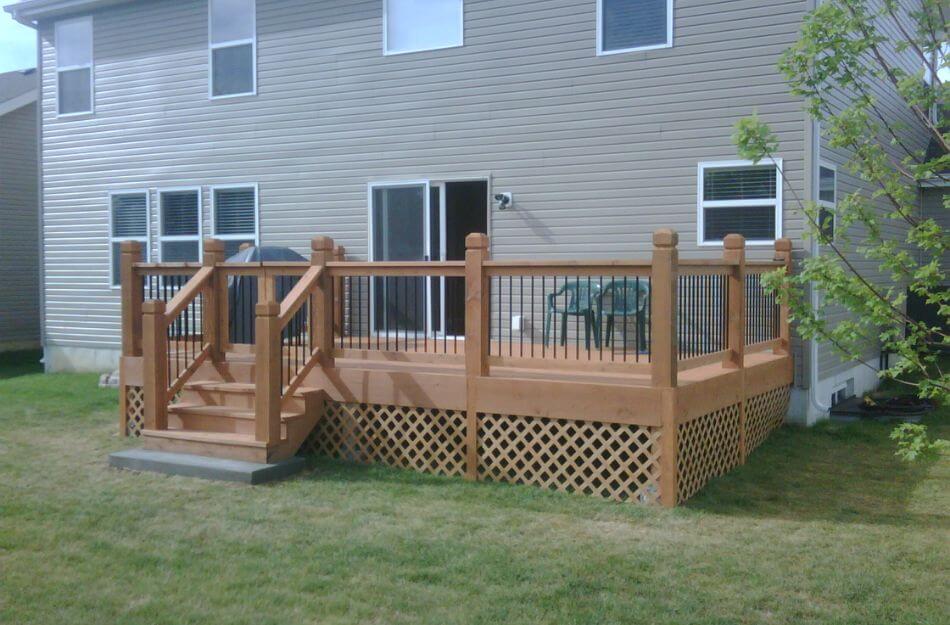
Deck blocks are viewed as a convenient and affordable choice for a deck foundation on one hand. They arrive with holes for fastening the posts of a deck and can be made of concrete or plastic.
However, post holes are considered a stronger and more long-lasting choice for a deck foundation.
Post holes are typically poured straight into the ground. They offer a stronger base for the deck because they are usually wider and deeper than blocks.
Both choices have benefits and drawbacks, so it’s crucial to consider your unique requirements, financial constraints, and regional building codes before making a choice.
Factors to Compare Between Deck Block vs Post Holes
There are many advantages and drawbacks of using deck blocks and post holes, but it is crucial to compare some factors between them in order to make a wise decision.: following are some comparable factors between them:
Installation Simplicity
Since deck blocks are performed pieces, they can be installed much more quickly than post holes.
Additionally, installing deck blocks only requires a small amount of digging compared to the substantial dirt excavation needed for post holes.
Price
Deck blocks are reasonably priced, and their installation doesn’t take much work. The post holes are, however, more expensive due to the expense of in-situ concrete and the related expenses of soil excavation.
Bearing Power
Since post holes have a larger mass and broader bearing area, they can support heavier loads than deck blocks.
Frost
Deck blocks are frost-resistant, but if you place your posts incorrectly, they could have resulted from the weather.
Lack of Expertise
Post-hole excavating calls for accuracy and knowledge. Deck blocks, conversely, don’t require any expertise; you can complete them on your own with the help of an appropriate guide.
If you have never completed this task before, it will be extremely challenging to do it correctly.
Physical Power
Using a handheld digger in post holes requires tremendous physical power, and using deck blocks is the same.
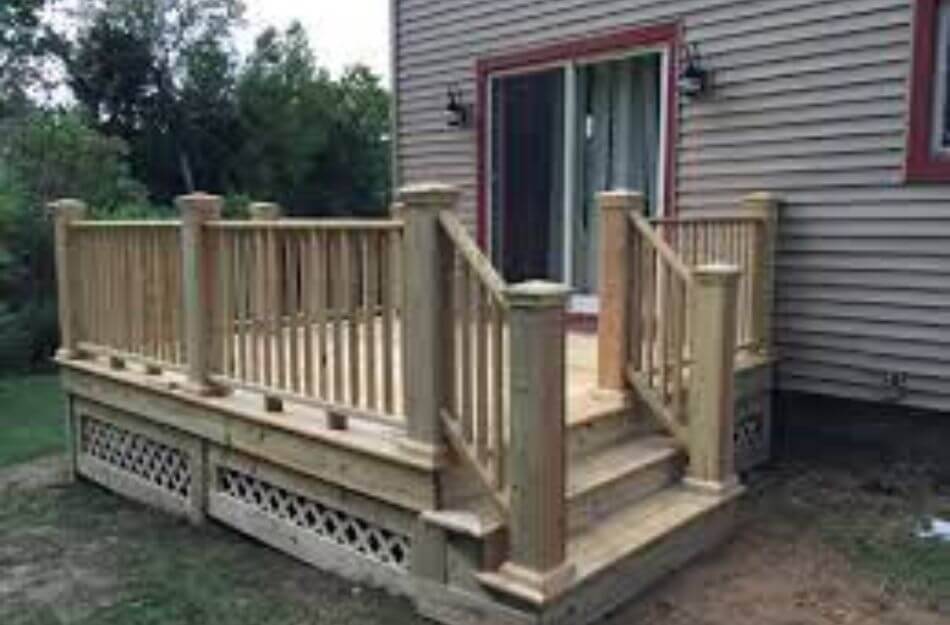
Risk of Injury
Using digging equipment that you are unfamiliar with carries a risk that you could get hurt or cause property damage if you dig your holes in the wrong location.
Time
Digging fence post holes can take a long time, particularly if you do it by hand. Deck blocks don’t require a lot of time and effort, and if you make an error that needs to be fixed, redoing it takes up a great deal of your time.
Appropriate Tools
If you don’t have the tools, you may have to rent, buy, or borrow them for Post holes as it requires appropriate tools.
And for deck blocks it will depend on the procedure whether you need to rent, buy, or borrow the tools for deck blocks.
Conclusion
Overall, even though it is quicker and less expensive to construct a deck using deck blocks, there is only a limited number of building options and locations where you can use them.
Post holes offer a more sturdy foundation, can be placed almost anywhere, and can be customized to fit your plans.
Although most holes are more costly, we advise choosing them if you want a stable structure. Deck blocks, however, are the best option if you’re looking for a fun DIY project to briefly liven up your plain front yards.
Recent Posts
Although deck sealing may not be at the top of your summer to-do list, you shouldn’t put off a task.One such deck that channels the opposite of the lively and enjoyable vibe you want from an...
Any home would benefit from having a deck because it adds more area for socializing, relaxing, and outside activities.Garden decking that has been properly polished can be elegant and lovely. It...
